The COVID-19 pandemic crisis is affecting every aspect of our lives and activities, but what are the legal implications of the coronavirus? This question was discussed at the China-EU School of Law (CESL) conference "Legal Implications of COVID-19 – Chinese and European Approaches". Legal scholars, lawyers, judges and law students from China and Europe met virtually on 20-21 November 2020. During these two days, the many speeches sparked a fruitful exchange among participants on the different fields of law being affected by the COVID-19 pandemic. It was the first online conference in the history of CESL and the conference was officially opened with a welcome from Prof. Liu Fei, CESL Chinese Co-Dean.

Prof. Liu Fei, CESL Chinese Co-Dean
The opening speech by Prof. Attila Menyhárd, from Eötvös Loránd University, analysed the allocation of the risks of the COVID-19 epidemic in contractual relationships in the private law system. “Could the fortune-telling crystal ball, made for Cixi, the empress dowager of the Qing (now on display in the museum of Philadelphia) have foreseen the COVID-19 outbreak in China?” asked Jacques Herbot, Professor em. from KU Leuven in his speech. The pandemic and related lockdowns could make it difficult or even impossible for parties to implement certain contractual obligations. This raises questions to whether this could have been foreseen.

Jacques Herbot, Professor em. from KU Leuven
Ge Pingliang, Associate Professor at CUPL, was the first speaker to address the pandemic from the perspective of Chinese company law. In his address, he pointed out that the COVID-19 pandemic has not yet affected the law, but that it has made certain problematic regulations more obvious. Ge Pingliang’s presentation was followed by He Dan (Beijing Normal University), Francisco Satiro (University of Sao Paolo) and Chen Xiahong (CUPL) presentations that discussed COVID-19 potential impact on insolvency law. Among other things, it was noted that an increase in the number of insolvencies is expected the near future. A modification of the Chinese insolvency law, that enables a more differentiated treatment depending on the involved parties and is more friendly to debtors, especially in light of the COVID-19 pandemic, would be very much welcomed.
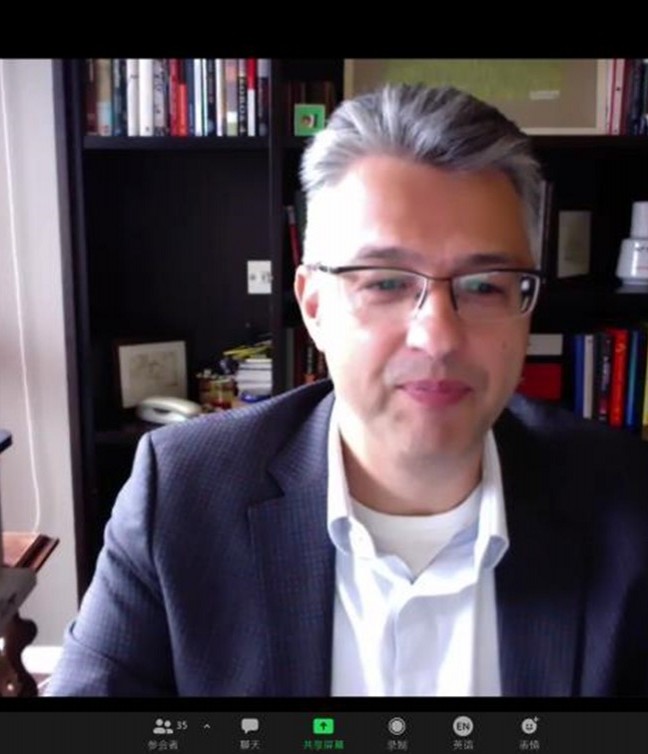

Prof. Francisco Satiro, University of Sao Paolo Dr. Chen Xiahong, CUPL
During the second session Xie Zhiyong, Professor and Dean of CUPL, discussed problematic issues regarding the “early warning system” in Chinese law, whereas Zhang Yi, postdoctoral researcher at Tsinghua University, spoke about the development of the public health contingency management in China. During the COVID-19 pandemic most universities had to shift to online teaching. Prof. Sebastián López Maza from Autonomous University of Madrid, gave an overview over the EU regulations concerning copyrights when teaching online.
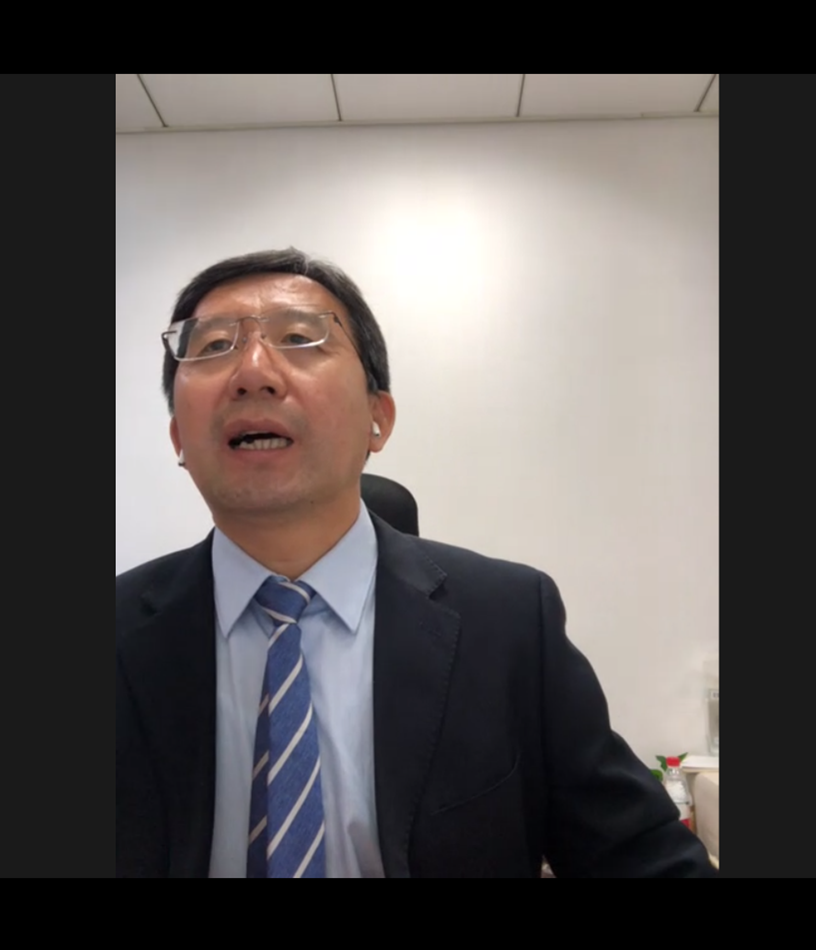

Xie Zhiyong, Professor and Dean of CUPL Prof. Sebastián López Maza from UAM
In the recent months many countries have introduced different kinds of tracing applications. The applications which are meant to reduce the spread of the virus and combat the pandemic have triggered a lively debate, especially when it comes to data protection. In her presentation, Prof. Christiane Wendehorst, University of Vienna, reported on the different types of applications and noted that the pandemic outbreak is testing fundamental rights to data protection and privacy. She further discussed the delicate balance between the right to privacy and the right to live, in the context of a health crisis. Prof. Sjef van Erp from Maastricht University spoke about the ownership of the data in such applications and discussed whether “data” could be owned in a private law sense and whether it could be compared to the ownership of physical tangibles.
With a possible vaccine to be expected soon, Dolores Utrilla, Associate Professor at University of Castilla-La Mancha, gave a presentation on the topic of European standards for compulsory vaccination discussing whether a compulsory COVID-19 vaccination be in accordance with EU law or not.
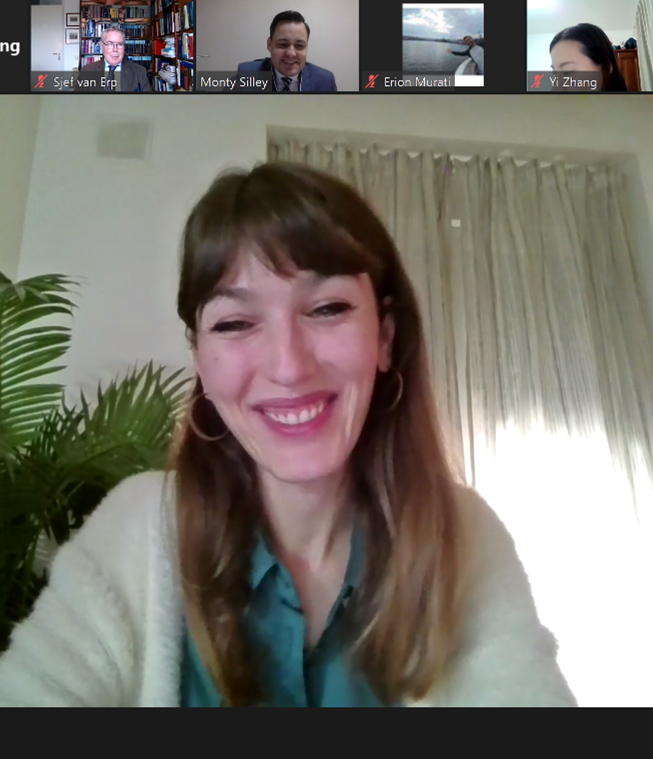
Prof. Dolores Utrilla, University of Castilla-La Mancha
The last session of the conference dealt with COVID-19’s impact on the judicial system. ”What are the protentional effects of 'virtual' criminal justice?”, was the question asked by Dorris de Vocht, Judge and Assistant Professor in Criminal Law at Maastricht University. She remarked that over the last nine months, the COVID-19 pandemic has led to an enormous increase in the use of courtroom technology, however the use of technology in the court room is not new and the technology will not disappear from our courthouses when COVID- 19 is ‘gone’. Dorris de Vocht concluded, that “there is a lot to be learned from our current experiences with technology – during the pandemic – but we should not forget that this situation was (and at present still is) extraordinary. We should be aware that the impact COVID-19 has (had) on criminal justice may blur the discussion on how to proceed with digitalisation in the courtroom”.
In China, “internet courts” are not a new phenomenon. Liang Fengyun, Deputy Chief of the Administrative Division of the Supreme People’s Court, mentioned in his speech that in China it is up to the parties to decide if they agree to hold the trial virtually or not. Since the COVID-19 pandemic the rate of online trials has increased rapidly. Dr. Martin Hejma, judge at the Labour Court in Hamburg, spoke on the developments of “digital justice” in German Courts, including the use of the electronic files and electronic court proceedings. The COVID-19 has forced everyone involved to use new digital tools, there is however still a lot of work ahead when it comes to the digitalization of the courts in Germany.
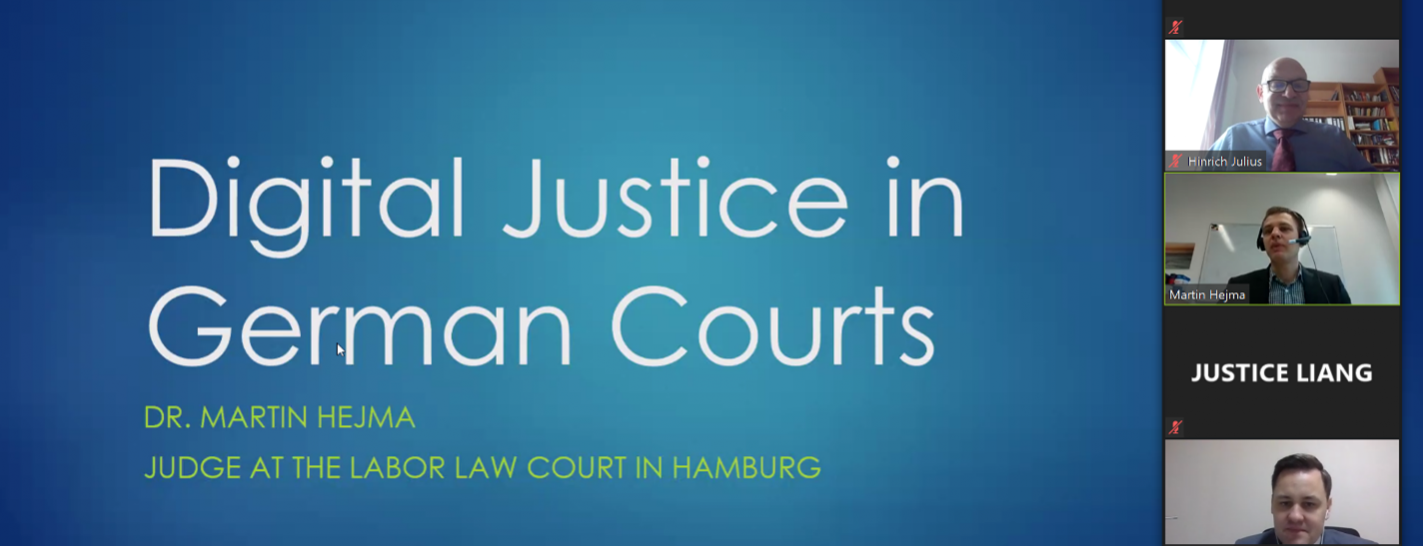
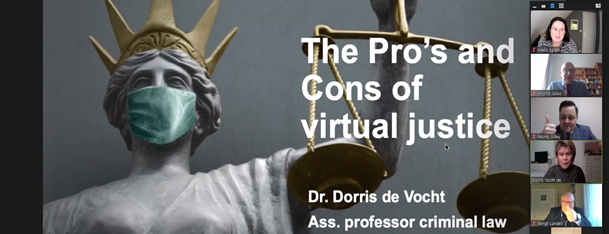
Prof. Bengt Lundell, CESL’s European Co-dean wrapped up the conference by recapping some of the major outcomes of the discussion and thanked the speakers and the participants for their contributions.
